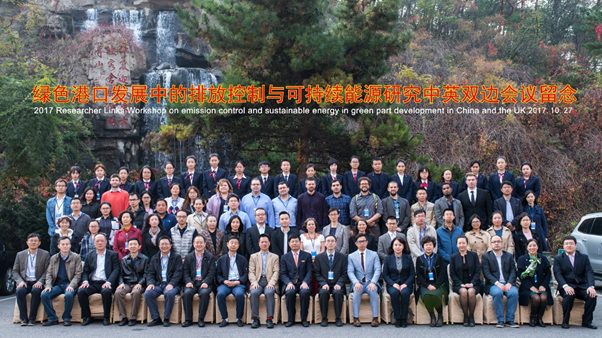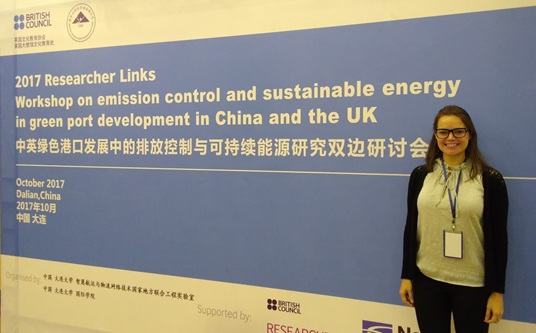Research Links workshop in Dalian
10 Nov 2017In October, Amanda made a presentation at the ‘Emission Control and Sustainable Energy in Green Port Development’ workshop held in Dalian. This workshop aimed to build collaboration and knowledge-sharing between researchers in the UK and China. It was funded under the Researcher Links scheme offered within the Newton Fund, the British Council and National Natural Science Foundation of China (NSFC), and was organized by Liverpool University and Dalian University.

The goal of the workshop was to discuss research on methods to reduce port emissions and different strategies of green port development. We were welcomed by the President of Dalian University and heard presentations on green development, emissions management, and energy management.
For the LUCAS group and our Shanghai case study, the port is an interesting consideration given that it is one of the world’s largest and busiest ports. Current policies testify to the tension between the economy and the environment: Shanghai’s port is an important economic growth asset; however, Song’s 2014 research has shown the emissions social cost of the Yangshan port totals 287 million USD (in 2009). While this port has expansion plans for 2020, the government also developed environmental goals for this year which seek to reduce energy consumption per handling capacity unit by 7 percent in 2017 (compared to 2010 levels). The strategy to achieve this goal includes six sets of shore power facilities, replacing energy sources, and increasing marine oil standards.
Given that ports co-evolve with cities in general (see Hall and Jacobs 2012), their international activities and operations will remain an important factor for assessing sustainability in cities.
